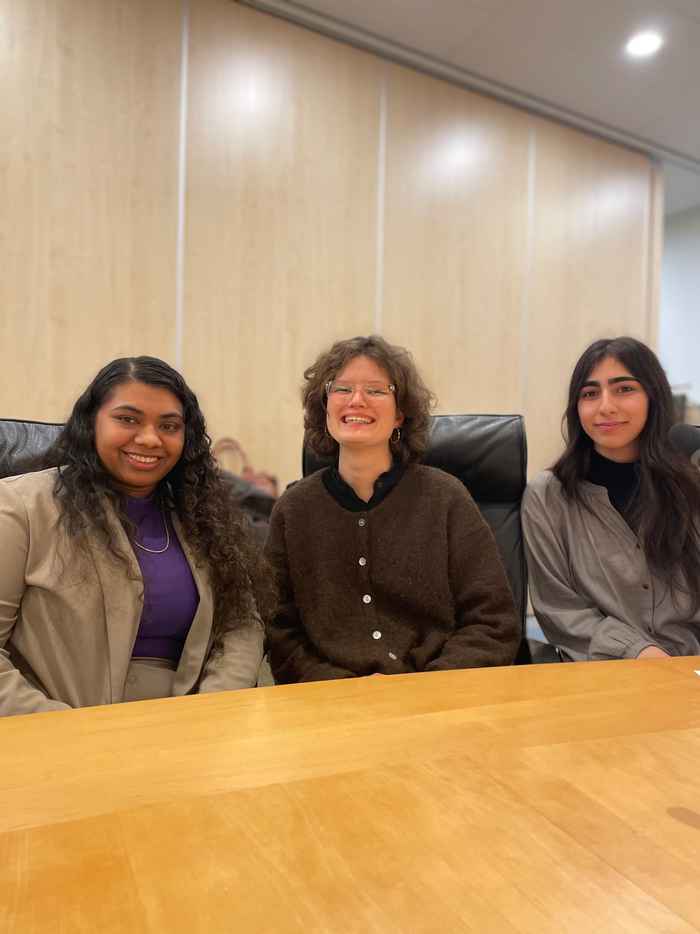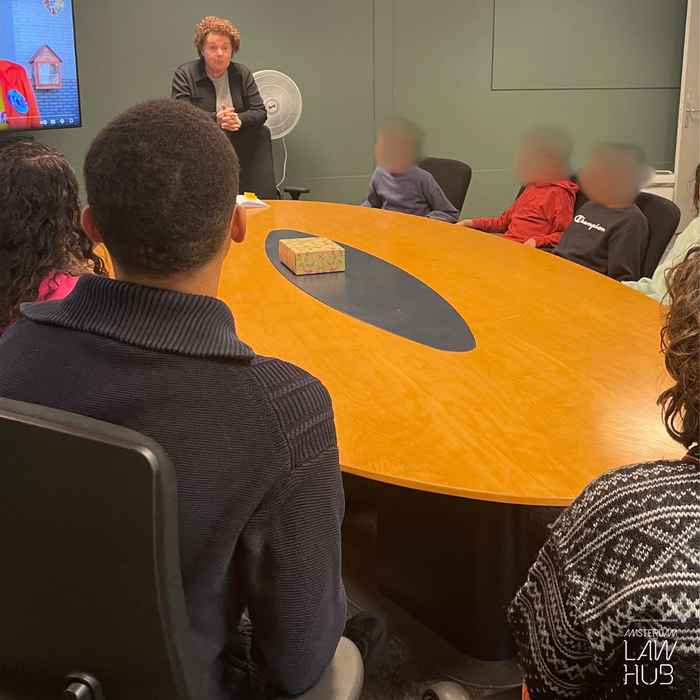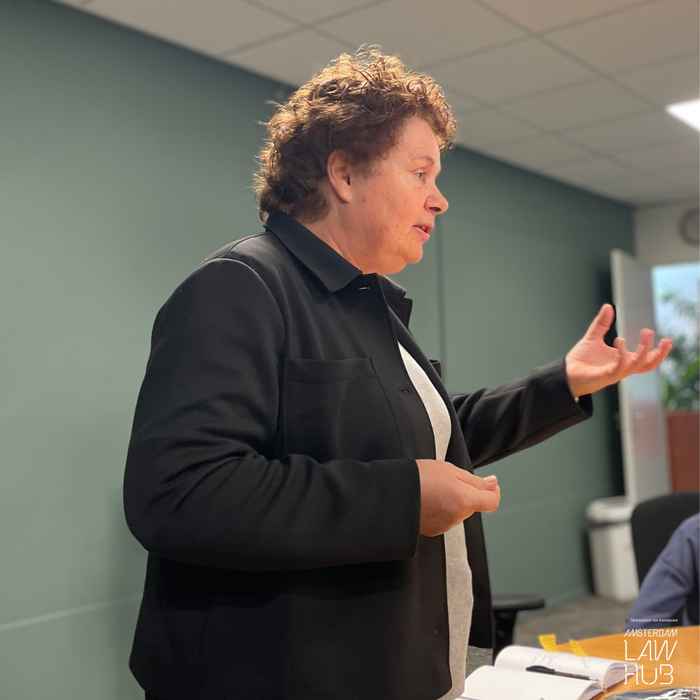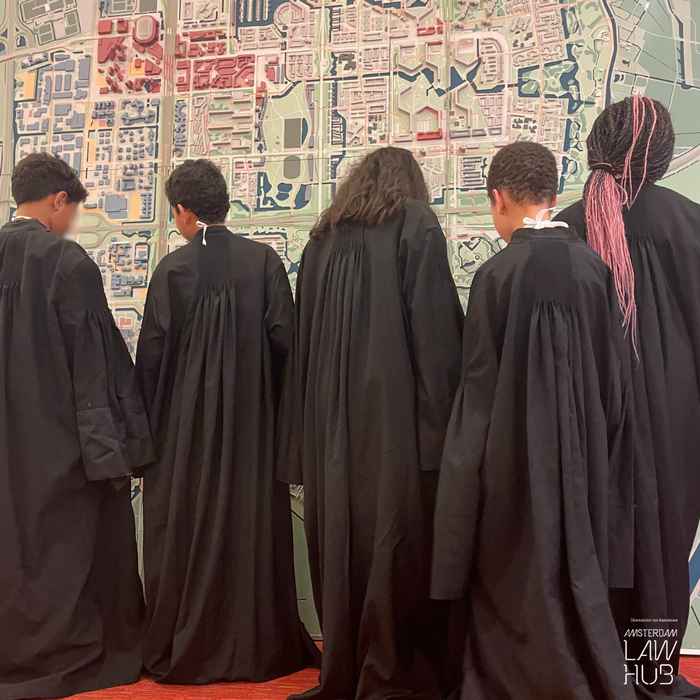Unique collaboration for pilot Recht in de klas: 'This time I'm the judge!’
#IMPACTSTORIES: inspiring stories on impact & innovation
13 December 2024

Project manager Susan Leclercq: 'This is the first time the Amsterdam Law School works directly with primary schools, which will hopefully be included in the Bachelor's programme. This pilot is actually part of a global street law movement, a movement that wants to make people aware of the law in their daily lives. It is an experiment for us as well as for our law students and the pupils.'
For this last lesson, 5 students from primary school De Schakel have put on a judge's gown and are completely in their role as judges and lawyers for Sofies case. The 12-year-old girl, the plaintiff, stole a make-up set, on which the Shopkeeper, the defendant, hung photos of Sofie in his store with: 'This girl is a thief'. The question that the students need to answer: is the shopkeeper allowed to do this?
We are welcomed by Tanja Jadnanansing, District Chairman Amsterdam Southeast, who explains a little bit about the workings of the District Office. Students Kate Wildschut, Mina Mirzai and Swastika Garib divide the roles for the case among the students. 'This time I'm the judge!'
Wildschut, Mirzai and Garib study law at the University of Amsterdam and are part of a pool of 5 students who, together with lecturer, lawyer and founder of Stichting MetRechtInvesteren, Judith Hoefnagel, guide the children through almost the entire legal system. From children's rights and human rights to a visit to the court of Amsterdam.
They discuss Sofie's and the Shopkeeper's arguments with their lawyers. The judges form their questions. 'Sofie should go to prison!' Wildschut explains that a judge can also impose community service on her, or a process can be started with bureau Halt, to prevent her from getting a criminal record.



‘We're only here for the chocolate milk’
For the third lesson in November, the students visited the Zuidoost District Court with Wijkrechter Leijten, part of the Wijkactieteam. Above all, she is the judge of the hearing on Jip the chicken, a case on animal law that the students previously delved into. 'Have you ever been here?' Immediately a number of hands shoot up. 'Very often, but only for the chocolate milk!' Everyone laughs.
Leijten tries to answer all of the students' questions; about arguments at school, parents who are divorcing and what is and is not allowed. In the end, the students come to the conclusion that a judge is very similar to their own teacher at school, who also keeps order, intervenes when necessary and makes problems discussable.
Hoefnagel: 'Gradually we learn a lot about which teaching material catches on and at the end of the series, we have a very good idea of what they can handle. I really notice that they are more and more involved in the material. Suddenly you see that light going on, that's fantastic.'
The group of students who teach the course together with Hoefnagel is very diverse. Wildschut is a Master's student Criminal Law. 'I hadn't thought I would be teaching during my studies, but when I was younger I wanted to be a teacher. During my Bachelor's I also taught students, so I certainly don't rule it out as a career.' Swastika was keen to gain teaching experience. 'I was really looking to teach about law, which is not offered as much. So this was a unique opportunity for me.'